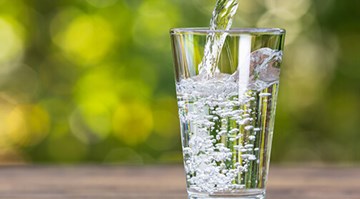Could the fountain of youth be as close as your kitchen faucet? Maybe, according to a new study linking hydration to good health, for the long haul.
Researchers studied more than 11,000 people ages 45 to 66 for about 25 years. To see who was and wasn’t parched, they measured blood sodium levels, which rise when you are dehydrated.
Those who were well-hydrated at middle age had a lower risk for chronic diseases, including heart failure, dementia, diabetes, and stroke. And they lived longer, too.
Don’t Let Your Health Dry Up
About 60% of your body is water. H2O cushions your joints, protects your brain and spinal cord from injury, and helps keep your body temperature steady.
But each day, you lose liquid through sweating and other bodily functions. Replacing your body’s lost fluids has long-term benefits, the study authors note. Drinking enough means your cells function better, keeping you healthier.
Easy Ways to Boost Intake
Women need an average of nine cups of water per day while men need an average of 13 cups. But you may need extra if you exercise frequently or are sweating more than usual — for instance, during the summer. To make sure you’re drinking enough water:
- Dine and drink. Have a tall glass of water with each meal.
- Keep water on hand. Keep a refillable water bottle within reach during the day.
- Try something new. Drink sparkling water or flavor tap water with lemon or cucumbers.
- Eat fruits and veggies that contain a lot of water. Good choices include strawberries, watermelon, celery, and cooked squash.
Every person’s hydration needs are different. Talk with your healthcare provider about how conditions like heart failure, cancer, medications, or other factors may affect how much water you should drink.






